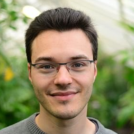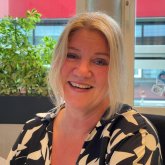We are developing a platform for label-free characterization of single (bio)molecules and nanoparticles, bringing the lab-on-a-chip concept to the ultimate single-molecule resolution. Your research will be focused on building a widefield iSCAT microscope for the readout of the optical signal from gold nanogap electrodes for trapping/actuation of single biomolecules using dielectrophoresis. Are you passionate about developing new single-molecule methods and have experience with interferometric techniques like iSCAT, COBRI, iSCAMS, and HiSCAT? We want to make these techniques better by adding a trapping functionality to them! Excited? Apply to this position! We have all you need to execute your ambitious research: cleanroom facilities, optical, electronic and chemical labs and most importantly lots of fun people to work with.
Information and application
Are you interested in being part of our team? Please submit your application before February 15, 2025, via the ‘Apply now’ button below and include:
* A motivation letter, emphasizing your specific interest and motivation to apply for a Postdoc position in our group.
* A detailed Curriculum Vitae including your publications, awards, and working experience. Your CV should demonstrate the scope of your work and education and indicate a good fit with the stated requirements for the position.
* An academic transcript of BSc and MSc education, including grades.
* A short description of your MSc thesis/final project.
* References (contact information) of two scientific staff members (one of whom should be the supervisor of your MSc thesis/final project) who are willing to provide a recommendation letter at our request.
* A note on using LLMs to assist in writing your motivation letter. Consider this fact: these days > 90% of the motivation letters are written using LLMs and most of them will not be shortlisted due to being similar to the other motivation letters written by an LLM. You can surely use LLMs for feedback on the grammar and structure of your application, but be mindful of giving it too much leeway in editing your documents, it may harm your chances of being hired.
For further information about this position, please contact Sergii Pud via s.pud@utwente.nl.
About the organisation
The faculty of Electrical Engineering, Mathematics and Computer Science (EEMCS) uses mathematics, electronics and computer technology to contribute to the development of Information and Communication Technology (ICT). With ICT present in almost every device and product we use nowadays, we embrace our role as contributors to a broad range of societal activities and as pioneers of tomorrow's digital society. As part of a people-first tech university that aims to shape society, individuals and connections, our faculty works together intensively with industrial partners and researchers in the Netherlands and abroad, and conducts extensive research for external commissioning parties and funders. Our research has a high profile both in the Netherlands and internationally. It has been accommodated in three multidisciplinary UT research institutes: Mesa+ Institute, TechMed Centre and Digital Society Institute.




